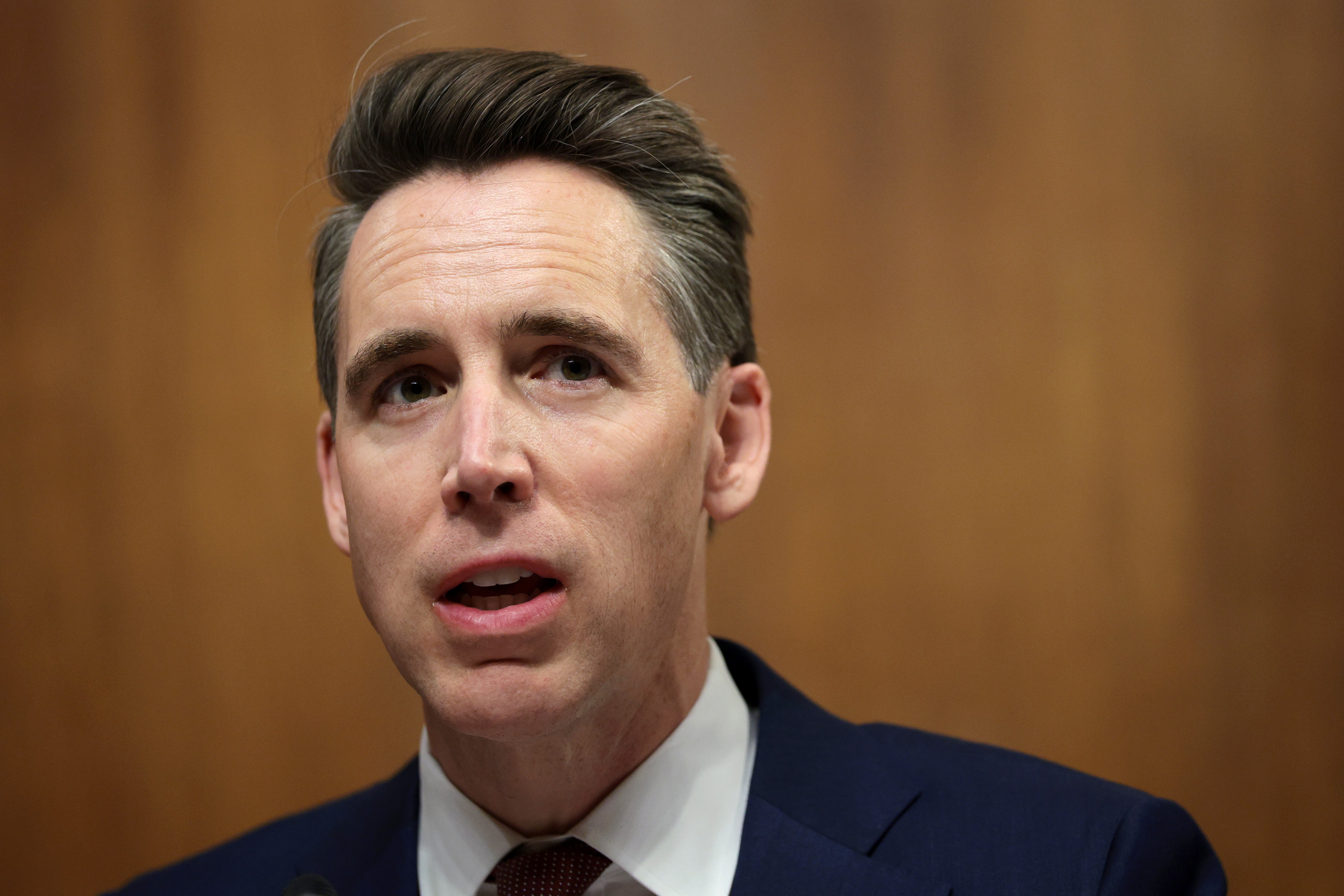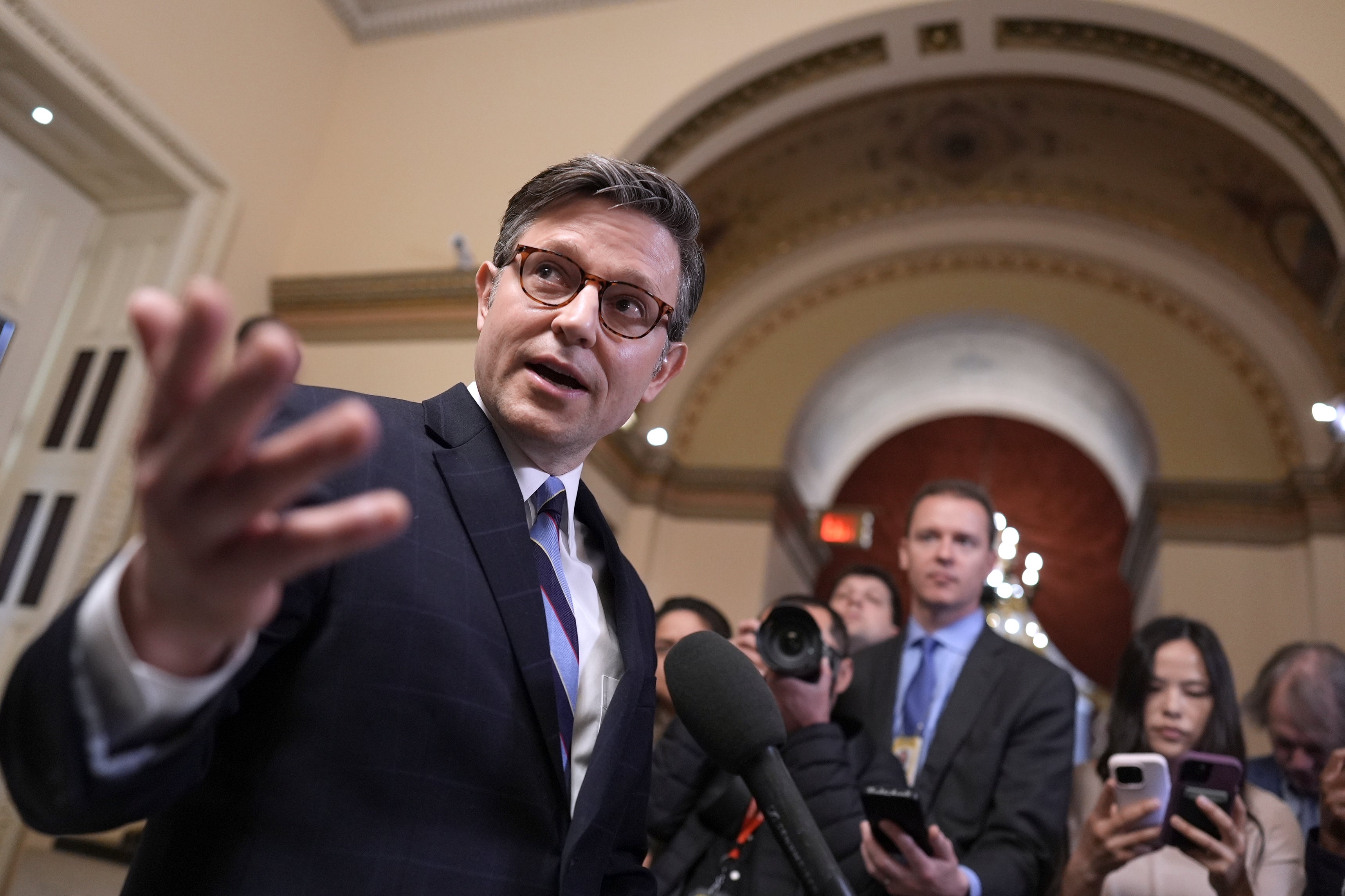ARTICLE AD BOX
House and Senate Republicans remain miles apart on whether to make significant cuts to Medicaid in President Donald Trump’s proposed “one big, beautiful bill.”
The US House of Representatives passed a version of the budget resolution that Senate sent right before the April recess. But that is just the beginning of the real fight.
The House wants to find $1.5 trillion worth of spending cuts to pay for $4.5 trillion in tax cuts, renewing the tax cuts that Trump signed in 2017.
But one major sticking point is that the House version of the legislation requires the House Energy & Commerce Committee to find $880 billion worth of spending cuts. Republicans have said they will not touch Medicare, the health insurance program mostly for people 65 years and over, while budget reconciliation, the process through which the Senate can pass legislation and avoid a filibuster, prohibits changing Social Security.
The nonpartisan congressional budget office has said that when Medicare is removed from the table, Medicaid – the program for poorer Americans, pregnant women and people with disabilities – makes up 93 percent of the money the committee governs.
House Speaker Mike Johnson told Axios during a sit-down that he wants to focus on reducing waste, fraud and abuse in Medicaid. Johnson said he hoped to see $500 billion worth of cuts.

“You eliminate fraud, waste and abuse, you bring in work requirements, and you tighten up the program, and you can find a lot of savings,” Johnson said. The number came after Politico reported that Rep. Don Bacon, a mainstream Republican from Nebraska, would not accept any more than $500 billion in cuts to Medicaid.
But some Senate Republicans also fear that the cuts might go too deep.
“I'm very worried about that,” Sen. Josh Hawley of Missouri told The Independent. “I won't vote for that.”
Hawley has said in the past he would support work requirements for Medicaid, but not outright benefit cuts. In 2020, Missouri voted to expand Medicaid eligibility under the Affordable Care Act, commonly known as Obamacare, for people who have incomes of up to 138 percent of the federal poverty level.
In return, the federal government matches up to 90 percent of the cost for the population under expansion. Numerous states with Republican governors or that voted for Trump either expanded Medicaid by ballot referendum or via their state legislatures.
Hawley, a populist Republican who has sought to make GOO policy more amenable to working-class voters, is not the only member of his party worried about Medicaid cuts. Susan Collins of Maine faces re-election in 2026.
“I certainly want to make sure that vulnerable citizens, whether it's seniors or people with disability or children or low income families are covered,” she told The Independent.
Trump for his part has said he does not want to touch Medicaid benefits for Americans.
“There are a lot of illegal aliens that are getting Medicaid that shouldn’t be getting it,” Trump said during a town hall on NewsNation on Wednesday evening. “And nobody objects to taking people off Medicaid that aren’t allowed to be there.”
Some states use state funds to increase eligibility for undocumented immigrants, according to the Kaiser Family Foundation. But federal dollars are already not allowed to be used to cover undocumented immigrants.
But some hardline conservatives want to see concrete cuts. Rep. Chip Roy of Texas, a hardline fiscal hawk and member of the House Freedom Caucus, posted on X about the need to change Medicaid.

“In the last 10 years, improper payments for Medicaid have exceeded HALF A TRILLION dollars,” he said. “That equates to $4,300 per household. Medicaid MUST be reformed.”
Others like Rep. Andy Harris, the House Freedom Caucus chairman, insist there will not be major cuts.
“Only in Washington is the slight decrease in the increase of a program called a cut,” Harris said on a House floor speech.
Republicans hope to wrap up legislation before the X-date, the proposed date when the United States will hit the debt ceiling, given that Republicans included a debt limit increase in the final legislation. They also hope to finish the bill by the end of the year to avoid letting the 2017 tax cuts expire.


.png?trim=44,0,46,0&width=1200&height=800&crop=1200:800)






 English (US) ·
English (US) ·